Hey friends, Barbarella here still contemplating the Cannes cut of SOUTHLAND TALES, which I watched not long ago. If you want to watch it too, Arrow Video released both the original 145-minute theatrical cut and the 160-minute Cannes cut on a special edition Blu-Ray this week. Written and directed by Richard Kelly (DONNIE DARKO), the bizarrely brilliant, futuristic SOUTHLAND TALES showcases an impressive cast including Dwayne Johnson, Sarah Michelle Geller, Seann William Scott, Nora Dunn, Amy Poehler, Justin Timberlake, and Mandy Moore.
While I would love the opportunity to pop inside Richard Kelly’s mind and wander appreciatively amongst his ideas and imaginings as if exploring and admiring art in a gallery, I had to settle for talking with him on the phone. Check out our brief conversation below.
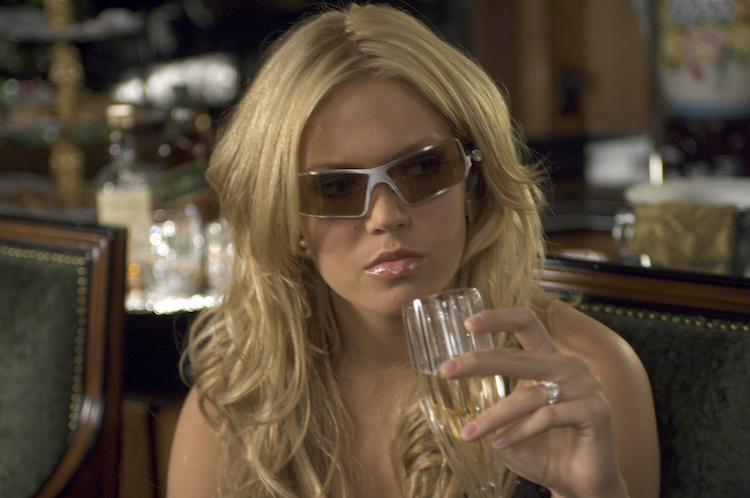
Would you talk about how the decision to release a restoration of this came about now?
“Well, it's been in the works for a while. People have always been curious about the Cannes cut of the movie. It's very interesting to watch, and there are a lot of things that I love and want to embrace about the Cannes version. It has more extended scenes, and it has more developed subplots. There’s material and stuff in there that I really think is important, but the visual effects are definitely not finished, so I just want to caution people that this is by no means the finished version of the film, because that still doesn't even exist yet. It's nowhere. We're still working on trying to do all of that.
“But I'm glad that we're at least getting a 4k restoration of, again, both versions of the film so that people can kind of be re-introduced after all of these years, and people who've never seen it and who just have read or heard about it [can be introduced to it]. I feel like there's a whole new audience that's kind of built for the film, especially in the last five years. The film just plays so differently now than it used to, given everything that's happened in the world. The world has gone so, so crazy. It's almost like SOUTHLAND TALES used to be this just completely bonkers thing, and now the movie almost feels understated in some ways.”
That's actually a really good segue into my next question. Which do you think is more absurd? The world of SOUTHLAND TALES or the world that we're living in now?
“Things have gone so off the rails, every day I wake up, and I'm like, "Okay, what's next?" You know? I open up my Twitter feed. I'm like, "Okay. What has [Trump] tweeted now? What's the next plot twist in season thirty-eight of “The Apprentice,” the reality television show that we're all trapped in.” You know?
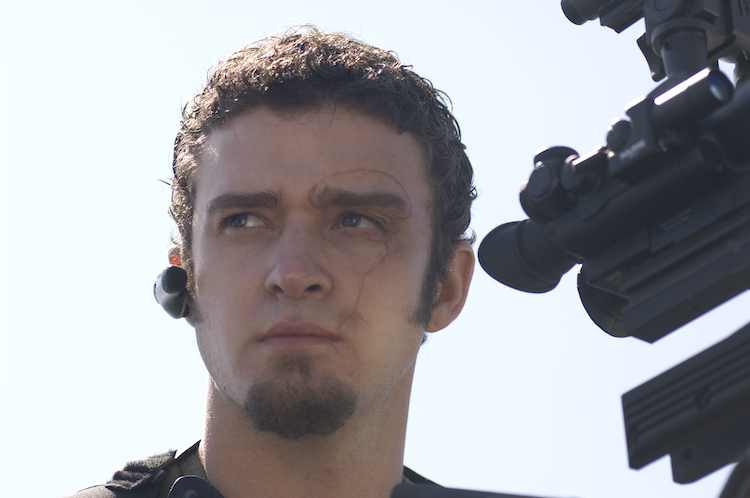
“Almost 15 years ago, we shot this movie, and we brought it to the Cannes Film Festival in 2006. We made this movie as sort of therapy for our anxiety about everything that was happening in the world back then. We were getting into the second round of the Bush administration and his re-election, and the Iraq war, Afghanistan, and [Hurricane] Katrina, all these things were happening.
“We were sort of making this big splatter painting, this big collage of our collective anxiety about the world. Maybe just the environment or the attitude or the state of the industry at the time was not receptive to what we were doing. There was just so much aggressive pushback that it became clear that the film was just going to get buried, and it was never going to get finished or never really achieve what it set out to try and do. It just kind of ended up going in a vault for a long time, and now look. Here we are with everything that's happened. I'm more excited than ever to revisit the world of SOUTHLAND TALES, just because I do feel like it can be therapeutic. As far as I'm concerned, I'm not trying to celebrate the apocalypse. I'm trying to find a catharsis in figuring it out. We’ve certainly, especially in this past year, all been living through such a difficult, challenging time.
“I think everyone that I've spoken to feels like they're ready for a lot of new artistic endeavors that are taking risks and pushing us into a more hopeful place. We’re making more experimental art, or we are making stuff that feels meaningful. We're exploring politics, religion, and pop culture, and we're pushing into some of the places that previously might have been deemed too risky or uncomfortable for financiers or distributors or studios. I'm happy and excited to revisit SOUTHLAND TALES more than ever, given everything that's happened.”
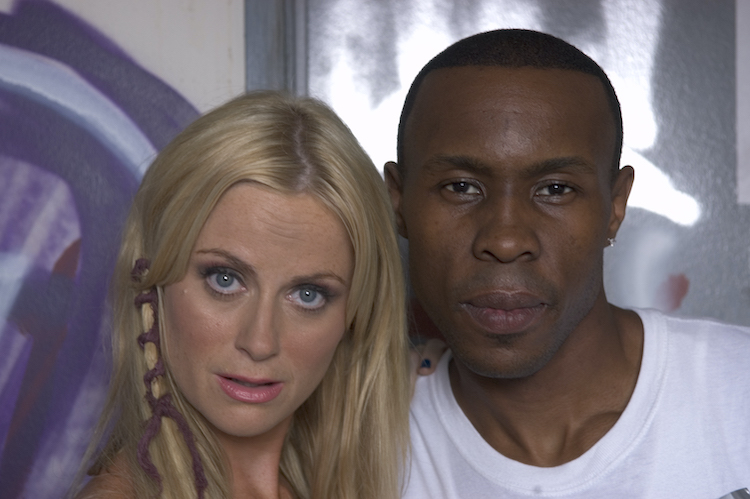
Has your own perspective on the film changed over time?
“Yeah. It's like there was such a cloud hanging over the film for so long because, again, it never got finished, and it never got the distribution that we wanted. It was just this cloud of failure that has been hanging over the film for so long. But to finally have people really embrace it with enthusiasm and to get all this renewed interest in it is just a moment that I've been waiting and preparing for. Because again, there's so much more I feel like I can do with it, and there's so much more story to tell, and it makes me grateful to at least have what exists now. You know? I have these two incomplete versions of the film, but at least [they’re] assets that I have to work with that I feel like I can carry forward. So yeah. It's exciting.”
Yeah, it is exciting. Do you think you're going to ever finish it?
“I hope so. I have a big new script that I'm pretty much finished with. It's pretty much ready for me to show to people. I've been in deep, deep discussions with the producers about the possibility of how we can pull this off, and how long it will take, and how much it will cost, and how we use animation for some parts of it, and potentially live action for other parts of it.
“But I do feel very confident that the new screenplay adds a whole new reality level, a whole new layer to the story that is, I think, very exciting and expands the whole universe of SOUTHLAND TALES in a way that, I think, will surprise people. Also, if it's allowed to be a six-chapter story, I think it'll really make a lot more sense to people. To have that extra narrative breathing room that you get from more long-form storytelling, I think, can really benefit the story and just really add a more exciting dimension to the whole thing.”
Oh, that sounds awesome. Is this going to be something that you're going to push for something like Netflix doing an extended kind of mini-series?
“I think that the plan that I've put together would definitely fit right at home on a streaming platform. I think anyone who's making any piece of film or television right now, whether it's a two-hour film or a six-hour event series, in the back of their mind, they have to be thinking, "How could this exist on a streaming platform?" I think that's just the reality [now]. There's always going to be a streaming component to pretty much anything that's going to get released these days.
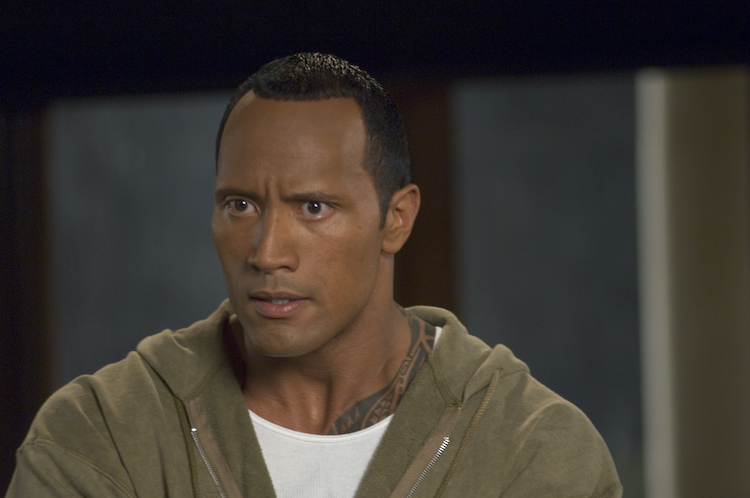
“The chapters are built into the DNA from the graphic novels that I wrote, and when you watch the existing film, you can see it begins at chapter four. People were thinking, "Oh, is that a nod to STAR WARS?" And I'm like, "Well, actually there's six chapters, and there's graphic novels." The groundwork has been published, and it's been in place for fifteen years now. I think it's just figuring out the best presentation and the best format, but none of this streaming-platform infrastructure existed in 2006. You know?”
Right.
“We were in a much more traditional business back then that was very reliant on theatrical, very reliant on the art house distribution model, platform release, wide studio release, test screenings, cinema score ratings, all that kind of stuff. And SOUTHLAND TALES was never going to successfully navigate that kind of a distribution apparatus. It just wasn't built for it. It was always built as this sort of sprawling kind of series kind of design. It’s just figuring out how do we adapt to the best way to release it today? There’s been a lot of internal discussions about what we think is best, and we'll see what happens.
“But there's a new script that I think is really exciting, and there's a plan, and there's definitely work being done behind the scenes to see what we can do here.”
Very cool. Would you talk a little bit about the documentary? Who’s included in it?
“It’s the behind-the-scenes players. It's myself, Steven Poster, our cinematographer, Alexander Hammond, our production designer, Matt Rhodes and Kendall Rhodes, who are two of our producers. It’s more of a discussion about the whole process of making the movie and going to Cannes and everything that's happened since.”
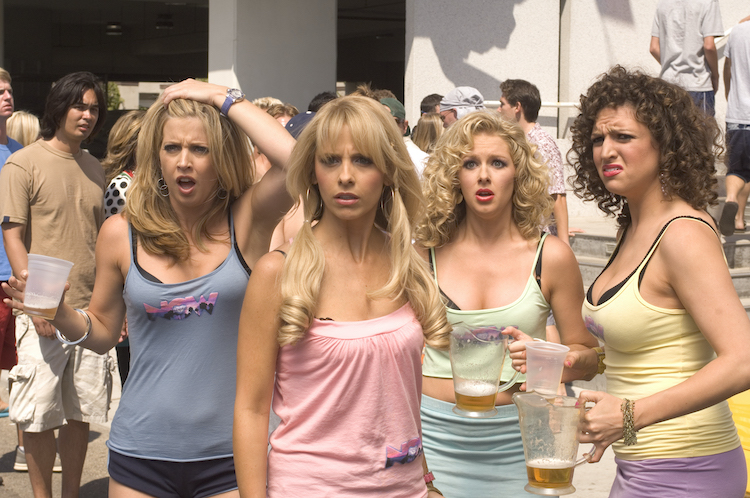
What has the experience of achieving cult status been like for you?
“Well, it's gratifying for people to finally recognize the film and see what we were trying to achieve with it and how much of a design there is to the narratives. Everything you see in the film has a reason for being there. There are things that probably don't completely add up or make sense because I need more real estate. I need a bigger canvas and a longer running time to be able to develop some of the more metaphysical, bigger things going on in the story. But I'm excited for people to finally start to realize that everything is there for a reason, and it has a real design to it; it has a real architecture to it. If I have the chance to expand upon it, it'll all make even more sense, and there'll be a much bigger world to explore.
“I'm grateful that people are actually just giving the film a chance now because for a long time, it just felt like we were doomed to failure, and that we were never going to get a chance to come back and re-visit anything. But I don't know. It feels like there's finally a light at the end of the tunnel for this project.”
You've mentioned a couple of times that feeling of failure. How do you kind of get past that feeling and keep pursuing your dreams and going forward?
“Well, I think you just got to keep writing. A lot of these projects, they take a long time to come together. You know? I've had a lot of projects that have hit speed bumps, or roadblocks, or we've had setbacks that have prevented things from moving forward. And it's very frustrating, but you just can't ever give up. I mean, this is what I do. This is what I was meant to do with my life. And I love it. I love telling stories.
“I haven't been idle. I haven't just been hibernating and surfing Twitter all day. I've been writing. I've been creating a lot of screenplays, and putting together a lot of really big, ambitious stuff. I have so many projects that are ready to go that once the first thing happens, and we've got our official green light on one of these things, I feel like I'm going to be directing back to back to back for a long time, provided there isn't some other catastrophe or something. Knock on wood. I'm excited for it all to finally pay off, and if it does, then I'll feel like I haven't wasted all of this time, that I've actually invested this time in building my future, really.”
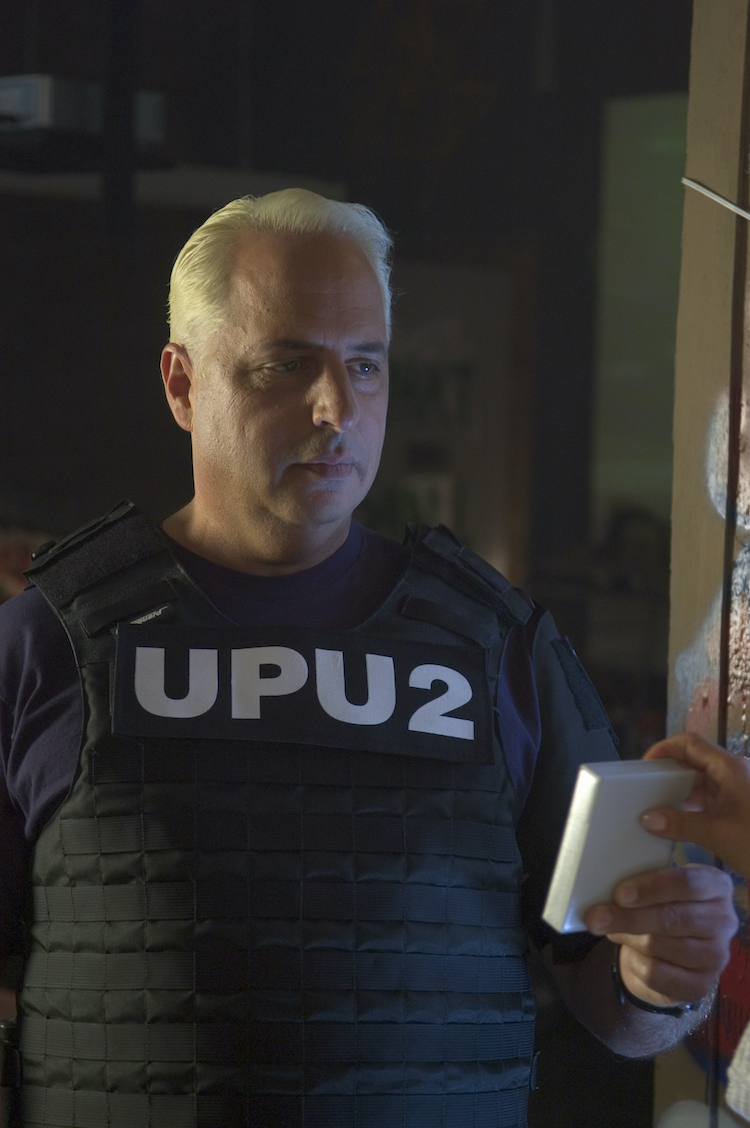
You've probably been writing a lot because it's therapy for you, right? And there's been a lot of reasons to go through therapy for these days.
“Yeah. I think being able to focus on something in 2020, to have a creative outlet has been a lifesaver. It really has because we've all been kind of locked up and isolated from our family and our friends. If your only outlet is social media or the news, I think that's not necessarily a healthy use of time. And if you're a creative person, and you thrive on creativity, to have projects that are therapeutic and exciting and stimulating, that's just a gift. I've been very productive during this whole pandemic and the lockdown and everything. I feel like I've made good use of my time. I'm grateful for that. I definitely am.”
Yeah, that's great. When you're writing multiple projects, do you write like a little on each one, or do you finish one and then start another one?
“Yeah. I will get to a point where I have multiple scripts. If it's a long-form project, and I get to the point where I've delivered it to the producers or to the studios, there's always a delivery period where you're waiting on notes or feedback. While waiting on them, the studio, to go do all of their due diligence, then I can switch gears and go move on to another project. I try to sort of checker-board the projects for when I'm going to deliver, then I can switch gears onto something else. It’s usually a few months on one thing, and then a month on another, and then I'll switch back, so it's kind of balancing things that way.”
What are you most proud of over the past couple years?
“Well, I mean, SOUTHLAND TALES will always be my favorite movie, and no matter how many movies I direct in my life, no matter how many things I create, television or film, I know SOUTHLAND TALES will always be my favorite and the thing I'm most proud of, just because of getting to work with all the actors, getting to assemble that whole cast, and to take the risk of making it. Even though it's been a long and winding road for this film, I'll always be grateful for getting the chance to make it.
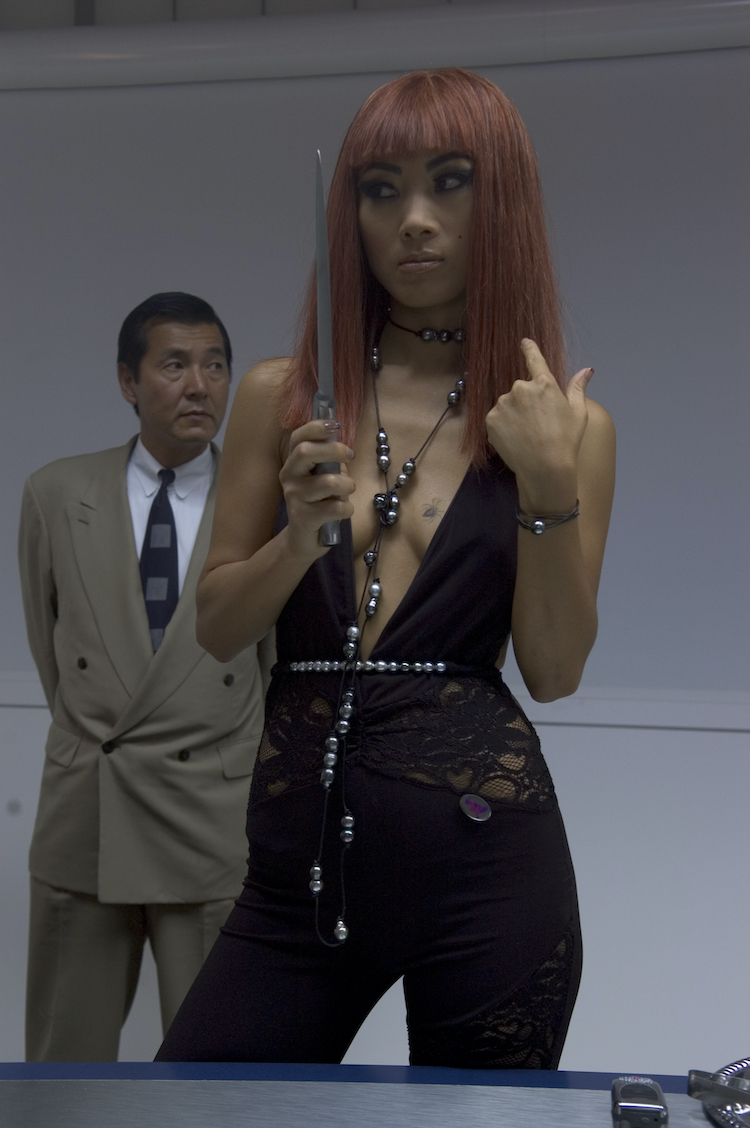
“And I'm also just really happy with all the writing that I've been doing. It's frustrating not being on a movie set, but all the writing that I'm doing is going to make it so when I'm finally directing again, I'll be directing for a long, long time because the scripts are all done. I've put so much of the writing behind me and in the rearview mirror that I feel good about that.”
I’m definitely looking forward to seeing what Richard Kelly delivers in the upcoming years. For now, I am happy to have the films he's already given us. The SOUTHLAND TALES Blu-Ray includes a documentary on making the feature film, a limited edition collector's booklet, a reversible sleeve featuring original and newly commissioned artwork by Jacey, and more cool things. Check out the film's trailer.
